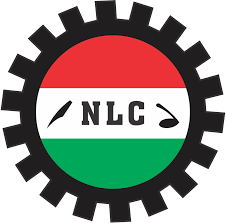BUSINESS
Explore Untapped Potential of Personal Income Tax to Boost Revenue, IMF Tells Poor Nations

By Joseph Amah, Abuja
The International Monetary Fund (IMF) has advised developing countries to explore the untapped revenue potential of personal income tax.
The global lender said this in a recent blog post titled ‘Personal Income Tax Has Untapped Potential in Poorer Countries.
’The IMF said that in most low-income countries, personal income tax averages only 2.
5 percent which is in part due to their narrow tax base.Low-income countries are nations that have a per capita gross national income (GNI) of less than $1,026.
It urged many governments aiming to achieve lasting economic recovery from the pandemic must raise significant amounts of revenue in the fairest way possible.
It said the personal income tax—levied on wages, salaries, and other income— is a suitable instrument for the challenge.
IMF said the personal income tax imposes steeper rates on those with a higher income—and reduces inequality measurably.
“In the two decades preceding the pandemic, income tax revenue more than doubled in low-income countries, rising from the equivalent of 1 percent of GDP to 2.1 percent, while emerging markets saw an increase from 2.1 percent to 3.1 percent,” the post reads.
“These were also reflected in the share of tax in overall tax intake, which went from 5 percent to 8 percent of total tax revenue in low-income countries and from 9 percent to 11 percent in emerging markets.
Examining the progress of the personal income tax in developing countries, the IMF highlighted observable tax policy changes and broader economic changes.
It said policy changes have targeted top and bottom statutory rates as well as the level of exempt income.
It, however, said this hasn’t contributed much to the increase in revenue in low-income countries.
“And in emerging market economies, this shift has sometimes actually reduced revenue. This is the case in part because many emerging markets have introduced flat tax systems with low rates and those with progressive schedules have reduced rates over the last two decades,” the Washington-based lender said.
“Economic variables, on the other hand, played a very important role. We looked at increases in per capita incomes and the size of the public-sector wage bill and the reduction in the size of the informal sector, as measured by the share of self-employed workers in the labour force and the share of agriculture in the economy.
“These developments have clearly been the driving force behind the growth in personal income tax revenues. As economies develop, we can expect this tax to take on greater importance.”
The IMF said that improvements in tax administration could play a potential role in boosting revenue.
It added that the accelerated shift into digitalised services could also pave the way for better income tax design and enforcement in developing countries.
BUSINESS
FCCPC Warns Traders against Price Inflation, Substandard Goods

The Federal Competition and Consumer Protection Commission (FCCPC) has issued warning to traders across Lagos State to cease artificial price inflation and ensure the authenticity and safety of their goods.
The Executive Vice Chairman and Chief Executive Officer of FCCPC, Tunji Bello gave the directive at a Market Engagement Forum organised by the commission in Lagos.
Bello, represented by Bridget Etim, Principal Consumer and Business Education Officer, FCCPC, underscored the commitment of the commission to fostering fair competition and safeguarding consumer rights, as enshrined in the Federal Competition and Consumer Protection Act (FCCPA) 2018.
He reminded all businesses, irrespective of their scale or operational setting that they are subject to the provisions of this law.
Bello said that findings from recent FCCPC operations included the discovery of expired rice re-bagged and sold as premium brands at Daleko Market.
He condemned such “wrong and illegal” practices, emphasising the inherent risks to public health and the damage inflicted on the reputation of honest traders.
FCCPC’s intensified engagement extended to major markets in Lagos, namely Mile 12 and Alaba.
At Mile 12, Lagos’s largest food hub, the commission tackled issues of tampered scales, under-weighing, the repackaging of spoilt produce, and suspected price-fixing of essential staples like rice, pepper, and yam.
Similarly, at Alaba International Market, a prominent electronics hub, the FCCPC addressed concerns related to the sale of counterfeit appliances, misleadingly labeled “Tokunbo” (fairly used) goods.
Others include false warranty claims, and coordinated price-fixing of electronics such as televisions, generators and phones.
“These are not minor issues. They affect household income, endanger consumer safety, and erode public trust.
“They violate key provisions of the FCCPA 2018, which prohibit deceptive practices and unfair pricing,” the FCCPC boss said.
He stressed that such violations not only harm the integrity of the market but also disadvantage honest traders who adhere to ethical practices.
While acknowledging the pressures faced by traders, including rising operational costs, Bello reiterated the FCCPC’s dual mandate: consumer protection and the amplification of genuine business concerns to relevant agencies.
He called for a collaborative approach with market leaders to establish new standards of integrity, where fair competition thrives and consumers can shop with confidence.
Bello urged traders to always ensure honesty and respect in their dealings with customers, to promptly address consumer concerns and complaints.
According to him, FCCPC is optimistic that this renewed engagement will lead to a shared vision with market associations to eradicate all forms of abusive and deceptive practices.
Speaking at the forum in Mile 12, Alhaji Shehu Jibril, Chairman, Mile 12 Market, that farmer security is critical for national food security and for them to be able to cultivate and harvest without facing ransom threats.
He called for investment in Compressed Natural Gas (CNG) trucks dedicated to transporting perishable items, noting that using the same trucks for chemicals and food is unsafe and harmful.
Jibril stated that the excessive cost of over N150,000 to transport goods from Kano to Lagos, driven by multiple taxes, severely impedes the movement of goods.
He appealed for government grants to support struggling traders, especially in large markets like Mile 12 Market, noting that most traders lack capital and need funding to sustain food supply chains.
Also, Chief Camilus Amajuoyi, Chairman, Alaba International Amalgamated Council of Sections, expressed the market’s readiness to work with the FCCPC, stressing the association’s commitment to stop selling bad goods but promote honest business.
Amajuoyi, who also heads the International Market Association Electronics, noted past engagements with FCCPC, where similar agreement and understanding with the CPC brought good results.
Also, the President-General of Alaba Council said traders in Alaba do not sell fake product no but highlighted a shift in the market where members were focusing on Nigerian brands, made locally.
“Most products here are indigenous. We are selling our own branded goods now,” he explained.
Amajuoyi denied claims of fake goods in Alaba.
“We are not selling fakes. Although, some of us stopped selling foreign products,” he added.
Amajuoyi insisted the market would help the FCCPC, saying, “The executive will find and catch those selling bad products.
“Such illegal acts hurt Alaba’s name. “We are ready to partner with you. We will help find those who subsidise originals.”
BUSINESS
FCTA Setup Vetting Committees to Scrutinise Sale of Govt Properties

By Laide Akinboade, Abuja
The Federal Capital Territory Administration (FCTA), at the weekend set up vetting committees to scrutinise the sale of Federal Government houses in the FCT, and the titling of designated park plots, including the management of allied land parcels in Abuja.
This was contained in a statement by Assistant Director of Information and Customer Service, Badaru Yakassai, in Abuja.
The FCT Director of Land Administration, Chijioke Nwankwoeze, inaugurated the vetting committees in his office.
Nwakwoeze explained that the committees were established to implement ministerial directives “following the discovery of serious irregularities and infractions in the sale of Federal Government houses in the FCT.
“The Director added that the said irregularities and fractions discovered include deviation from approval mandate, improper verifications, late payments, inadequate documentations, poor interdepartmental coordination and other specific infractions,” the statement added”
He noted that the FCT Minister, Nyesom Wike, approved the constitution of the committees “with clear directives, mandates, and terms of reference, to ensure that all processes are completed within a reasonable time frame.”
Nwankwoeze added that the vetting team on the sale of government houses is expected “to restore order, accountability, and transparency in line with the original 2003–2005 monetisation and sales policy framework of the Federal Government.”
He further stated that a second vetting committee had been set up to handle the titling of designated park plots, with a mandate to align the activities of the Department of Parks and Recreation with the current land reform policies of the FCT Administration.
Nwankwoeze stated that the FCT Minister, Nyesom Wike, approved the constitution of the committees “with clear directives, mandates, and terms of reference, to ensure that all processes are completed within a reasonable time frame.”
Nwankwoeze added that the vetting team on the sale of government houses is expected “to restore order, accountability, and transparency in line with the original 2003–2005 monetisation and sales policy framework of the Federal Government.”
He further stated that a second vetting committee had been set up to handle the titling of designated park plots, with a mandate to align the activities of the Department of Parks and Recreation with the current land reform policies of the FCT Administration.
“The setting up of the vetting committees was a bold and irreversible step toward restoring sanity and public trust in the FCTA.
“He emphasised that the government has deployed machinery to put to rest all lingering issues surrounding the sales of the Federal Government’s houses and designated park plots in the territory,” the statement further read.
The director expressed confidence that the committees will sanitise the system and rebuild citizens’ trust in public land administration.
This is because the FCT Minister has the ‘political will’ to drive it to a logical conclusion, and this forms part of the aspirations of the ‘Renewed Hope Agenda’ of President Bola Ahmed Tinubu,” Nwankwoeze stated.
BUSINESS
Digital Bank PalmPay Gets Recognition

Torough David
Digital bank PalmPay has once again secured global recognition, earning a place on CNBC and Statista’s 2025 Top 300 Fintech Companies in the World list.
This marks the second consecutive year the fintech platform has been listed among the world’s most innovative and impactful financial technology firms, placing it alongside global giants such as Revolut, Nubank, and Ant Group.
In a statement on Tuesday, the Founding Chief Marketing Officer at PalmPay, Sofia Zab, described the recognition as a strong validation of the company’s commitment to financial inclusion across emerging markets.
“To be recognised as one of the world’s top fintech companies by CNBC and Statista is a powerful affirmation of our mission to build a more inclusive financial system,” she said.
Zab noted that PalmPay’s strategy combines cutting-edge technology with deep local distribution to meet the needs of underserved communities.
“Through a customer-first mindset, we’ve built Nigeria’s leading neobank,” she added.
PalmPay currently serves over 35 million registered users, processing up to 15 million transactions daily. In Nigeria, its core market, PalmPay operates as a full-service neobank, offering services such as transfers, bill payments, credit, savings, and insurance, all available through its user-friendly mobile app.
The company also maintains a nationwide network of over one million agents and merchant partners and provides POS and API-driven solutions for merchants and enterprise clients.
Group Chief Commercial Officer at PalmPay, Jiapei Yan, said the fintech platform is building a neobanking infrastructure that aligns with the realities of emerging markets.
“We are creating the infrastructure for a connected digital economy where people and businesses can thrive through reliable, inclusive financial tools,” Yan said.
He added that the CNBC and Statista ranking not only affirms PalmPay’s progress but also highlights the scale of opportunity in emerging markets.
PalmPay recently expanded into Tanzania and Bangladesh, using smartphone device financing as a gateway to digital financial services for new users in these regions.
“Our focus remains on closing financial access gaps for everyday consumers and businesses, while expanding the partner ecosystem that fuels our reach and impact,” Zab said.
Earlier this year, PalmPay was also ranked #2 overall and #1 in financial services on the Financial Times Africa’s Fastest-Growing Companies 2025 list. The ranking reflected the company’s rapid scale and market traction, based on revenue growth between 2020 and 2023.



















